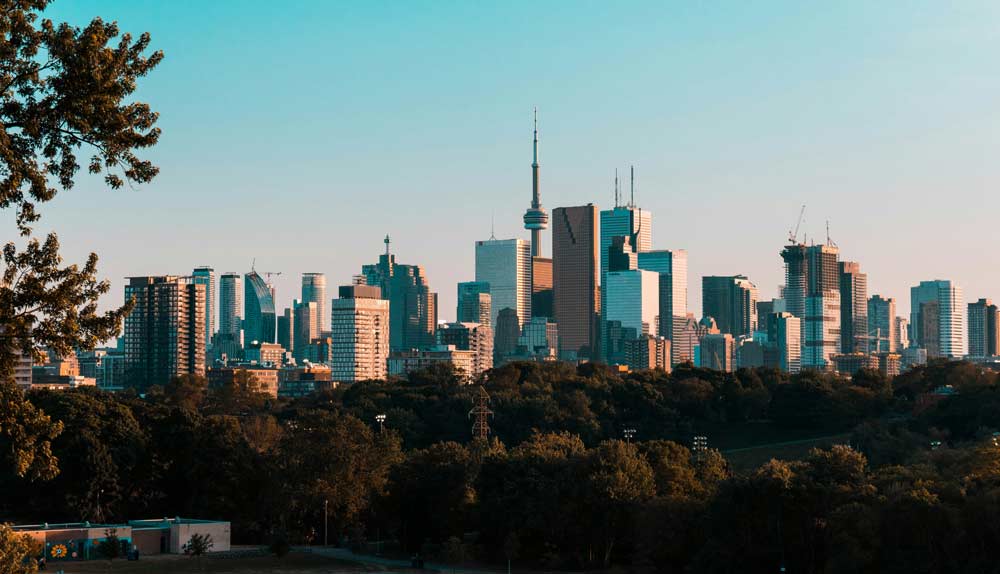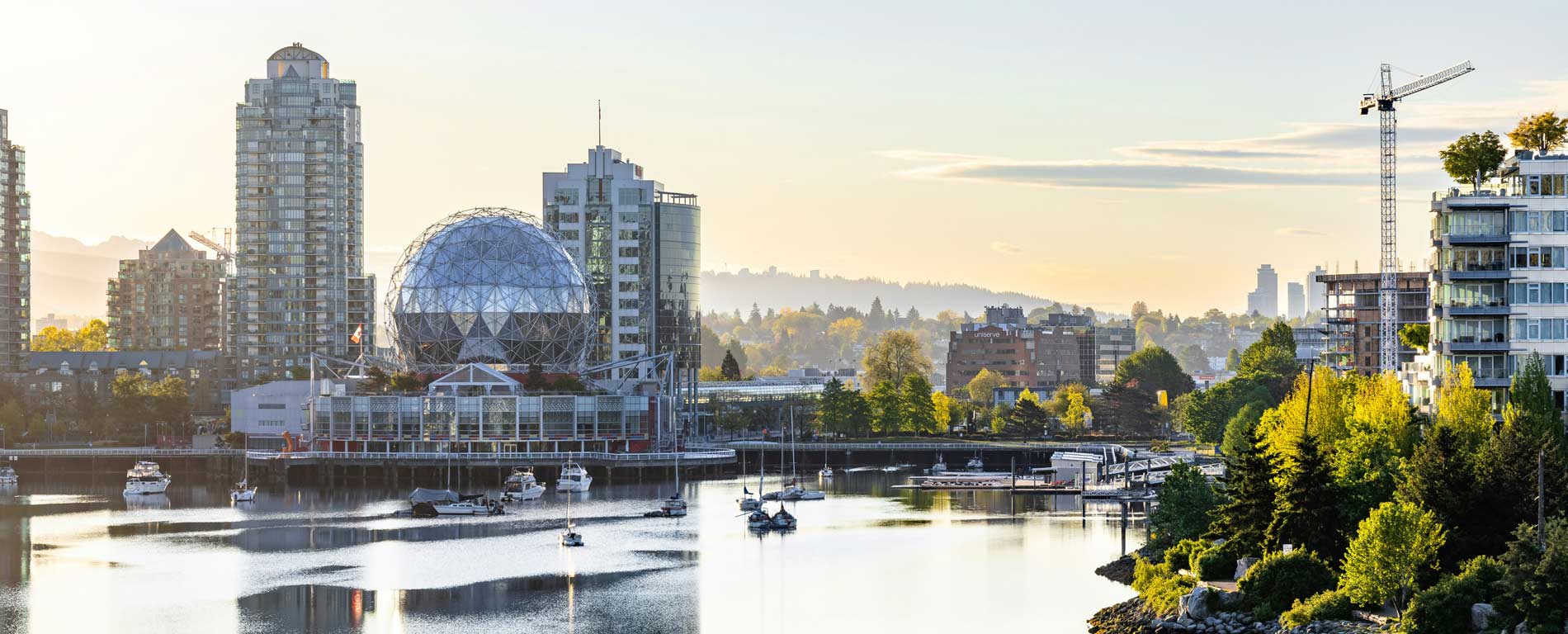Welcome! You’ve landed at the information hub for participants (and others interested) in EcoAnalytics’ Clean Cities Research (CCR) Project. Here, you’ll find key information about the project, its progress, results and opportunities to engage in it.
Quick links
- Slides outlining project from kick-off meeting (July 2025)
- CCR email updates: September 18th, November 27th,
- Phase 1 End-user consultation report
- Phase 2 Business stakeholder report
- Phase 3 Quantitative Survey (in the field)
- Report out in April
- Phase 4 Qualitative Focus groups
- Starting up in late April
- To join our mail list or get further information about CCR, email
Project progress
Phase 1: End-user consultations (with city administrators and elected officials)
These conversations with city staff and elected officials in ON and BC aim to understand the fuller context for the project and how its products can be tailored to meet their needs.
Update: In August, Re.Climate began interviewing five city staff and elected officials in Ontario and five of the same in BC to better understand their perspectives on landscape for climate communications and possible policies in their municipalities. Insights will inform quantitative research planning in Phase 3 and knowledge mobilization (communications tool-kits and training) in Phase 5.
Milestones and opportunities to engage ()
- Drafting of interview script (complete)
- Interviews (complete)
- Final report
Phase 2: Interviews with key business stakeholders
With the guidance of the Zero Emissions Innovation Centre (ZEIC) in BC and and The Atmospheric Fund (TAF) ON, CCR researchers (with Bright Future Studio) will conduct detailed interviews with 20 building contractors in BC and 20 building owner-operators in ON. (ZEIC and TAF are members of the Low Carbon Cities Canada (LC3) Network), expert capacity-builders.
The focus here is on building decarbonization and performance with the aim of understanding better the knowledge, opinions, and behaviours of these professionals related to practices and progressive codes.
Update: Bright Future Studio has completed the BC interviews and will report out in March. The Ontario interviews will be conducted later this spring.
Milestones and opportunities for advisors to engage ()
- Scope and interview script (complete)
- BC Stakeholder Interviews (October-January 2026)
- ON Stakeholder Interviews (Jan/Feb 2026))
- BC Report out webinar (March 12, 2026)
- ON Report out webinar (May/June, 2026)
Phase 3: Quantitative population surveys in urban regions of ON and BC
A team of CCR researchers based at l’Université de Montréal will conduct two opinion surveys of residents of the GTHA (ON) and Metro Vancouver and the CRD (BC) (n=1,500 in each province),to understand attitudes, knowledge and behaviours related to a range of climate solutions of interest to project advisors, including environmental NGOs and LC3 Network members (see Phase 2 progress, above).
The survey will include a battery of questions to segment respondents according to their values and behaviour, based on EcoAnalytics CA-MAP segmentation research (2023-2024). This will identify those who fall into the curious middle of the environmental-opinion spectrum: interested individuals without strong opinions for or against climate-friendly policies — a group of urban voters that could be activated in support of climate policies at critical moments.”
Update: Participants contributed to the development of these surveys in the fall. The survey is now in the field with a report out in early April. Based on contributions from participants the two policy block areas of focus are building decarbonization and adaptation.
Milestones and opportunities for advisors to engage ()
- Start-up meeting (Complete)
- Researcher consultation with participants (October 2025)
- Draft survey for review (November/December 2025)
- Survey is conducted (February 2026)
- Final results report (March 2026)
- Results report webinar (April 2026)
Phase 4: Qualitative focus group research
Building on the quantitative surveys, we will conduct three focus groups in each province to identify frames, messages and messengers, as well as visual content, to engage segments in the curious middle needed to build a stronger social mandate for climate policies. The aim here is to test and build on the findings, helping cities have a more nuanced understanding of the values and behaviour of strategically important groups of urban residents.
Update: Phase to begin in April 2026
Milestones and opportunities for advisors to engage ()
- Phase start up meeting (April 2026)
- Researcher consultation with participants
- Draft discussion guide for review
- Focus groups (May 2026)
- Final analysis and report
- Report out webinar (July 2026)
Phase 5: Knowledge mobilization
EcoAnalytics’ partner Re.Climate will consult with project advisors, to tailor toolkits and training sessions for 10 different audiences: city administrators, elected officials, capacity building organizations and NGOs engaged in climate policy advancement in the GTHA and MetroVan/CRD. In addition they will work with BC’s Community Energy Association (CEA) to develop a tool-kit and training session for city staff, elected officials and allies in BC beyond the urban research regions in this province. Re.Climate will also present the findings to a national audience, key takeaways for climate communicators across the country. These interactive presentations will offer advice about strategic frames, trusted messengers and visual content, packaged in a way that cities and others can use immediately.
Update: phase begins in August 2026
Project Context
Canadian cities are more than ever alone on the front lines of efforts to address climate change, and the transition to a clean economy, particularly as our country enters a trade war and public debate is often marked by rancor and misinformation. The two-year, Clean Cities Research (CCR) Project will use targeted studies and evidence-based guidance to help cities and municipalities in BC and ON, and their diverse allies, build mandates in real time to advance thorny, tippable, transformative policies that address climate change, improve the lives of thousands and clear barriers for businesses to accelerate the transition to a clean economy. Informed and driven by influential actors — city administrators, advocates for low-carbon cities, NGOs and others — the CCR project will cover a range of climate issues, while also focusing on building performance.

Description
The CCR Project will support a program of qualitative and quantitative research in BC and ON, and share the results widely with key audiences: city staff and elected officials in research regions and beyond, capacity building groups, advocacy organizations, NGOs as well as building stakeholders.
In BC, we will work with the city administrators, community groups, NGOs and an interdisciplinary team of university and private researchers. The aim is to understand how to engage the curious middle of the electorate and building contractors in Metro Vancouver and the Capital Regional District, in support of a range of urban climate solutions, including low-carbon step codes (BC ZCSC) and retrofitting.
In ON, we will work with city staff, elected officials and allied organizations in the Greater Toronto and Hamilton Area (GTHA) to engage key segments of residents and building owner/operators in support of urban climate policies including green design standards for new buildings and building emissions performance standards (BEPS) for existing buildings.
Project participants
EcoA members, Zero Emission Innovation Centre (ZEIC), The Atmospheric Fund (TAF), Community Energy Association, (CEA), Low Carbon Cities Canada (LC3), Stand.earth, Environmental Defence, ICLEI, Climate Caucus, Clean Air Partnership (CAP), Youthful Cities, Urban Climate Leadership (UCL), WE-CAN, BC Climate Action Secretariat, CityHive
Project partners: Re.Climate, Bright Future Studio, Environics Research, Drs. Erick Lachapelle and Marjolaine Martel-Morin, Université de Montréal
Project Funder: Ronald S. Roadburg Foundation


